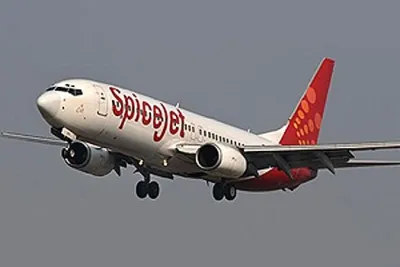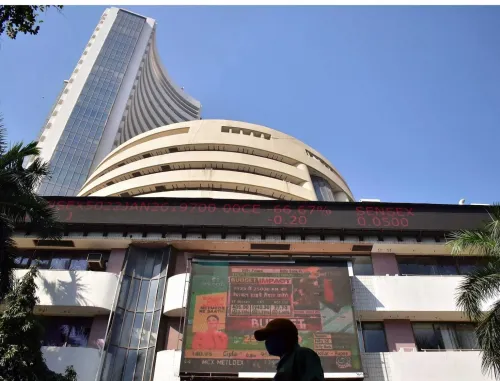How Did SpiceJet End Up with a Rs 234 Crore Loss in Q1?

Synopsis
Key Takeaways
- SpiceJet reported a consolidated net loss of Rs 234 crore in Q1 FY26.
- Revenue from operations fell by 34.4% year-on-year.
- The airline's net worth improved to Rs 446 crore.
- Operational metrics included an 86% passenger load factor.
- Plans are underway for further fleet expansion.
Mumbai, Sep 5 (NationPress) The budget airline SpiceJet has reported a consolidated net loss of Rs 234 crore for the first quarter (Q1) of FY26, a stark contrast to the net profit of Rs 158 crore seen in the same quarter of the previous financial year (Q1 FY25). This significant downturn was attributed to a 34.4% decline in revenues, which fell to Rs 1,120 crore from Rs 1,708 crore, as disclosed in the company's filing with the stock exchange.
The airline attributed its losses primarily to the costs associated with grounded aircraft and the expenses incurred to return them to operational status. Additionally, it cited geopolitical tensions with a neighboring country and airspace restrictions in critical markets that adversely affected demand for leisure travel.
Despite this loss, SpiceJet revealed an improvement in its financial standing. The airline's net worth has notably turned positive at Rs 446 crore during the quarter, reversing the previous deficit of Rs 2,398 crore reported in Q1 FY25.
In terms of operations, SpiceJet achieved a passenger load factor of 86%, with passenger revenue per available seat kilometer recorded at Rs 4.74.
The airline finalized a restructuring agreement with Carlyle Aviation Management Limited for lease obligations amounting to $121.18 million. It has also secured leases for 10 Boeing 737 aircraft, expected to join the fleet in October, and is negotiating for additional narrow-body and wide-body aircraft to be inducted during the winter season.
Chairman and Managing Director Ajay Singh commented on the results, indicating that they reflect the “extraordinary challenges” faced by the aviation industry. He pointed to geopolitical turbulence, restricted routes, and supply chain disruptions as significant hurdles, but emphasized that SpiceJet is actively working to enhance fleet reliability, reduce costs, and expand its operational network.
Singh expressed optimism that India's rapidly growing aviation and tourism sectors would facilitate a robust recovery in the upcoming quarters.
The airline's results were made public after market hours on Friday. Earlier that day, SpiceJet shares closed nearly 2% lower, at Rs 34.45 per share. Despite a more than 6% drop over the past week, the stock has seen a slight increase of about 1% within the past month.









